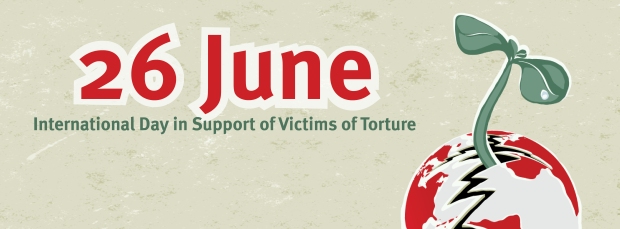Editor’s Note: Rehabilitation works and is a torture survivor’s right: this is the theme of this year’s 26 June campaign for the UN International Day in Support of Victims of Torture. During the next two weeks, we shall be posting testimonies, stories and experiences from torture survivors themselves. Their testimonies explain clearly – rehabilitation works and is a torture survivor’s right.
Many survivors of torture come from countries with ongoing armed conflict. In Nepal, the 10-year civil war between Maoists and government forces led to the deaths of approximately 15,000 Nepalis and an estimated 100,000 to 150,000 were displaced as a result. This is the direct testimony of Amita*, which was translated and submitted by member centre Transcultural Psychosocial Organization (TPO), based in Kathmandu.
“At the time, I was 50 years old. Around 100 soldiers came to my house at around 7 am from the district headquarters. They said to me, ‘You have given food and shelter to the combatant, haven’t you?’
“One of the soldiers slapped across the face three times. My face swelled, and I screamed with pain.
“Ten days later, the soldiers came to my house again at 7 am and again abused me. ‘You have given food and shelter to the Maoists, haven’t you?’ At that time, my younger son was in the next home. They pulled him from the house, and a soldier put a gun to his forehead and shot him. My son died on the spot.
“At the same time, they arrested by elder son and took him to jail in the headquarters. He was physically and mentally tortured many times in jail. They kept him there for three months. We appealed to the politicians, and they in turn told the armies. After that, they released him. He was swelling. I shouted. We took my elder son to the hospital for treatment.
“Nowadays, my elder son cannot work. I have stomach problems and swelling. I have lost my younger son. I am an illiterate housewife, and thus, my economic condition is very poor. I have in total four sons and one daughter, but I need both legal and economic support.”
Report from the centre:
Amita was referred to Transcultural Psychosocial Organization (TPO) for much-needed psychosocial support. During her counselling sessions, it was discovered that she had been suffering greatly from feelings of irritation and anxiety about day-to-day life – irritation in her daily work, problems with self-care, discussions with other members of the family, crisis in thinking about the future, and confusion over everyday decisions.
Psychosocial counsellors met with Amita and provided much-needed emotional support. After a few sessions, Amita expressed a great improved in her outlook and self-confidence. This case is still ongoing.
* not her real name
